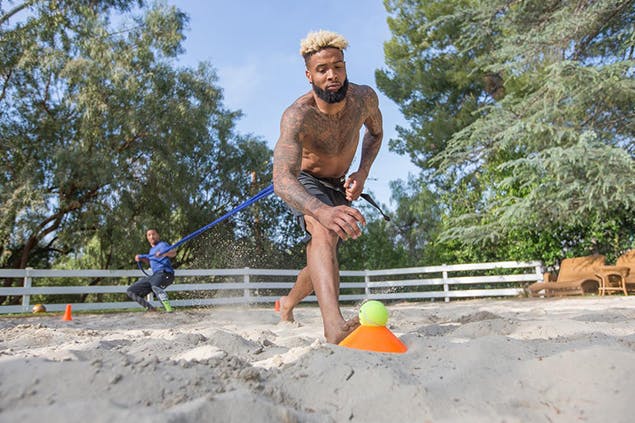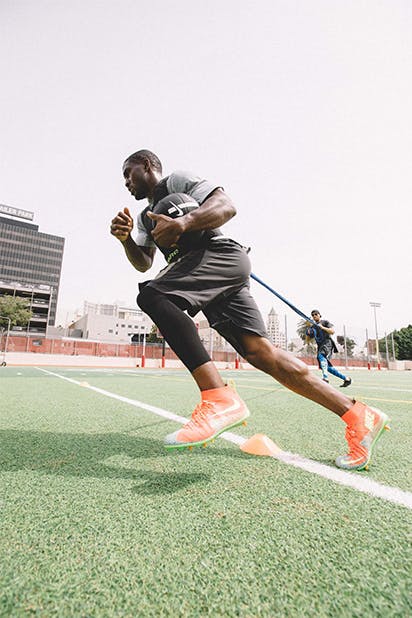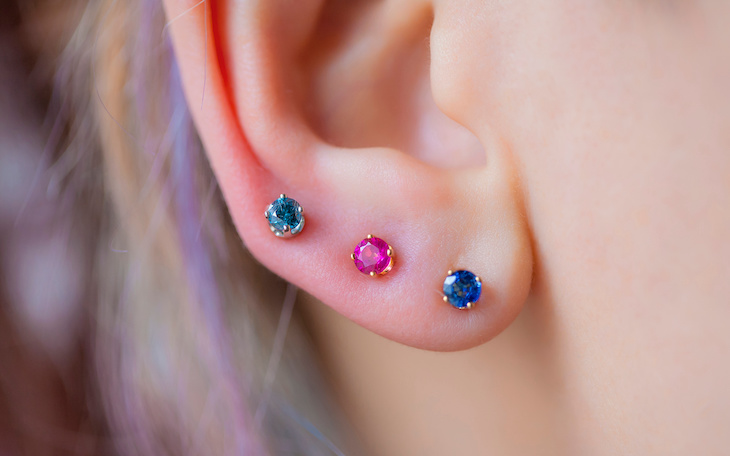With the Super Bowl just days away and the Olympics on the horizon, we got to thinking about the role of sleep in the lives of elite athletes. How does sleep affect their performance, and how do they manage to get enough rest with such hectic schedules? Most important, what can we mere mortals learn about better sleep from the example of the nation’s top competitors?
For insights, we turned to Jamal Liggin, a professional trainer whose clients include the NFL’s Odell Beckham Jr., Marshawn Lynch and Marcedes Lewis. When it comes to training athletes, Liggin takes sleep seriously. In fact, he starts each session with the same question: “How much sleep did you get last night?” Being well rested is crucial for both safety and success—which is why he has been known to send clients home if he doesn’t like the answer. “Simple drills and exercise become impossible without proper amounts of sleep,” Liggin says.
Whether your peak performance takes place on a playing field or behind a desk, Liggin has some pro advice that can improve the quality of your sleep. Here are his top tips.
Jamal Liggin’s sleep tips

Jamal Liggin and Odell Beckham Jr.
Get at least 6 to 8 hours of sleep
The most important aspect of good sleep is simply getting enough of it. We know that adequate sleep is necessary for cognitive function, but it’s also essential for physical performance. Moreover, says Liggin, high-intensity training requires focus, and “if the client is tired there are higher chances of injury.”
Stretch for 10 to 20 minutes before getting into bed
During deep sleep, our muscles relax, so stretching before bedtime not only relieves tension from a day’s workout but also helps puts our body into “sleep mode,” Liggin says. Physical and mental tension are closely linked, which is why experts also recommend “progressive muscle relaxation” (often used as part of meditation) for those who struggle to get to sleep. This technique involves tensing and releasing individual muscle groups to relieve tension throughout the body.
Drink a bottle of water before bed, and another in the morning
Liggin says that, surprisingly, many of his clients forget to drink enough water. After a long day of training, it’s crucial that top athletes stay hydrated, especially because they can lose fluids during the night, which in turn can disrupt sleep. Dehydration at night can lead to a parched throat (which can cause snoring and hoarseness) and muscle cramps. Drinking water in the morning will help replenish any fluids lost overnight.
Take a hot bath or shower before bed
This is another great way to “wind the body down,” according to Liggin. A hot bath or shower (or a stint in the sauna) can help to soothe and loosen sore muscles, which in turn signals our body that it’s time for bed. The key is to leave about 90 minutes between the shower and bedtime in order to give your body a chance to cool down.

Limit daytime naps to one hour
Liggin says some of his clients like to take a midday nap after morning workouts, but he advises them to snooze for no more than one hour. “Otherwise,” he says, “it’s harder to go back to sleep later that night.” Napping is a contentious topic among sleep experts. Most agree that naps should be between 20 minutes and 30 minutes, and certainly no longer than an hour. The important thing is to establish a consistent sleep-wake schedule, and naps (although sometimes necessary) can disrupt that schedule. Long naps can leave us groggy for the rest of the day, which is detrimental for athletes in training. If you find yourself needing long naps frequently, talk to your doctor.
No spicy foods before bedtime
Spicy food can upset the digestive system and cause fitful sleep. According to the New York Times, which reported on an Australian sleep study, there are several reasons: “An obvious possibility is indigestion. But scientists also noted that after eating spicy meals the subjects had elevated body temperatures during their first sleep cycles, which has been linked in other studies to poorer sleep quality.” In general, it’s not a good idea to eat too much before bedtime, but if you find yourself eating late, avoid spicy food at all costs.
Get off the phone
Staring at your phone and browsing social media is the “ultimate killer when trying to go to bed,” Liggin says. This habit tends to take valuable time away from other more helpful pre-sleep rituals. More important, backlit screens flood our eyes with blue light, which prevents our brains from secreting melatonin. This hormone is crucial to establishing our natural sleep/wake cycles and prompting the onset of drowsiness. If you must look at screens late at night, try using an app to filter out blue light, or consider wearing tinted glasses that do the same.
Reduce sugar intake one hour before bed
Athletes and other highly active people tend to consume a lot of energy drinks as a way to replenish lost electrolytes. Liggin strongly discourages consuming sugary beverages before bedtime. Sugar is a stimulant and, like blue light, it delays the release of melatonin and causes an increase in sleep arousals. Those sleep interruptions pull us out of deep slumber without fully waking us up, leading to poorer quality rest overall. It’s tempting to indulge those late-night sugar cravings, but whether you’re an accountant or a professional athlete, Liggin and other experts say it’s a bad idea.
Put the next day’s goals in writing
Liggin got this advice from his coach in college. The coach asked, “What are your goals? Take them with you, carry them with you when you train. You can always go back to them. Sleep with them under your pillow. Let them be the last thing you think of at night, and the first thing in the morning.” Research suggests that athletes who visualize their goals are more likely to achieve them. Given that Liggin has created a world-renowned training program with all-star clients, it’s clear that sleeping on his goals has worked for him. Try sleeping on yours, and see where it takes you.








